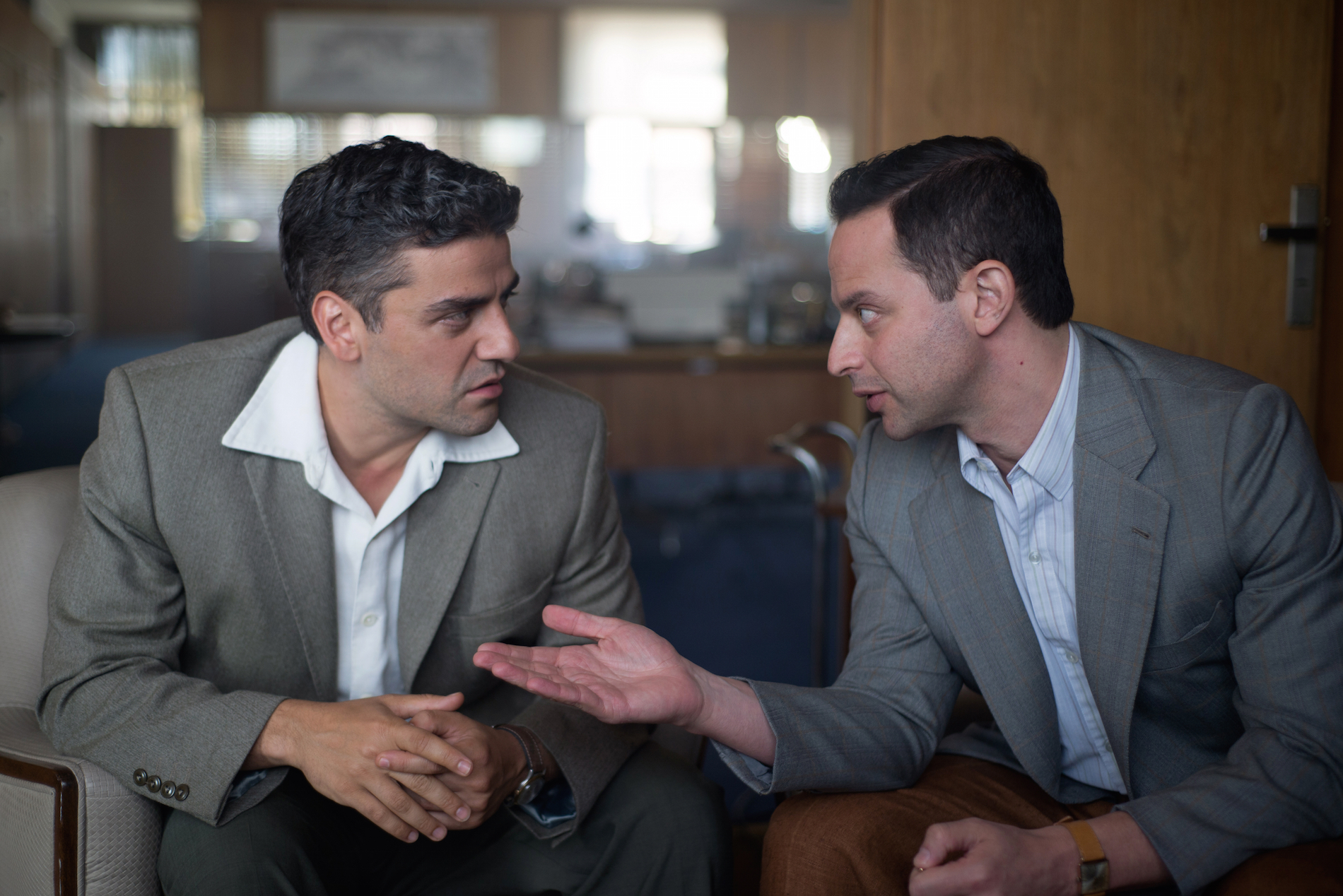For all intents and purposes Oscar Isaac’s latest film, Operation Finale, is a period drama. Set in 1961, it follows Peter Malkin (Isaac) and a team of Israeli agents as they track and retrieve Adolf Eichmann, a top brass Nazi who fled Germany in 1945 and disappeared without a trace. Ostensibly a thriller that kicks off when Eichmann (played by Sir Ben Kingsley) is found in Buenos Aires, the film is also a character study of a supposed family man who was also the architect of the Final Solution. On paper it’s your run-of-the-mill Nazi historical drama. But as director Chris Weitz, Isaac, and the rest of the cast and crew found out as they began shooting the film down in Argentina in 2017, Operation Finale would end up being a much more relevant film than they could’ve first imagined.
“Suddenly, you have Charlottesville,” Isaac told Remezcla “and it was like, Oh my god we’re making a present-day movie!” In seeing footage of the deadly white nationalist rally in North Carolina, the Guatemalan-born actor saw, “How easy it is for that kind of hatred and fervor to be whipped up. You don’t have to be a mindless psychopath — it just takes a few degrees of changing how people think and how people view others, playing on nationalism and pride and slowly start to go the other way and how scary that is.” The reason Eichmann was difficult to find in the first place was because he’d been able to hide in Argentina, protected by the growing numbers of Nazis who’d fled there and had begun mapping a way to revive their political careers there.
For Nick Kroll, who plays one of Malkin’s colleagues, seeing Charlottesville play out in real time ahead of going down to Buenos Aires to shoot a movie about Nazis was eye-opening. “For the first time as an American Jew I, all of a sudden, was feeling a heightened level of anti-semitism I had never experienced before in my life. It just made it all that much more relevant.” The white nationalist rally was a reminder of how not far-removed the kind of hatred Europe experienced in the 1930s and 1940s remains in the twenty-first century.

It wasn’t, of course, just the anti-semitism on display but the sheer disregard for understanding those who are different from you. And, at a time when border patrol agents as well as detention center guards hide behind “I am just following orders” mentality, a film that focuses on the man who dreamed up the bureaucracy that made the Holocaust a possibility, feels incredibly timely. As Weitz put it, “I think stories like these should remind people of the catastrophic end of politicians’ motivating by their hatred of the Other.” It wasn’t hard to imagine which politician he might be referring to. Eichmann, after all, contends that all he did was to defend his country from outside forces, mingling anti-immigrant, anti-semite, and xenophobic rhetoric all in one.
How to grapple with the hatred that people like Eichmann stoked and mobilized in the name of their country is at the heart of Operation Finale. That’s precisely why it feels so contemporary in 2018, especially once it stops being a cat-and-mouse story and it turns into a two-hander where Isaac’s character has to get Eichmann to sign away his life to be taken to Israel to face trial. For Isaac, playing Malkin was an exercise in empathy. “Peter Malkin would defuse bombs,” he shared, and Eichmann “was the most complex bomb he had to defuse.” It wasn’t about hitting or killing this so-called monster. Malkin was forced to “deal with him and treat him like a human being and talk to him and engage with him — with the most horrible, heinous person he could possibly imagine.” The goal was to disarm hatred. And as the film attests, that’s not an easy feat to accomplish.
The fact that Operation Finale focuses on such a hopeful vision of how to seek justice is perhaps its most uplifting message. It’s not about reaching across the aisle and forgetting the atrocities committed by those who don’t see you as a person, but about holding them accountable for such deplorable points of view. It’s as perfect example of “when they go low, we go high” as history has ever offered.
Operation Finale opens in theaters on August 29, 2018.







